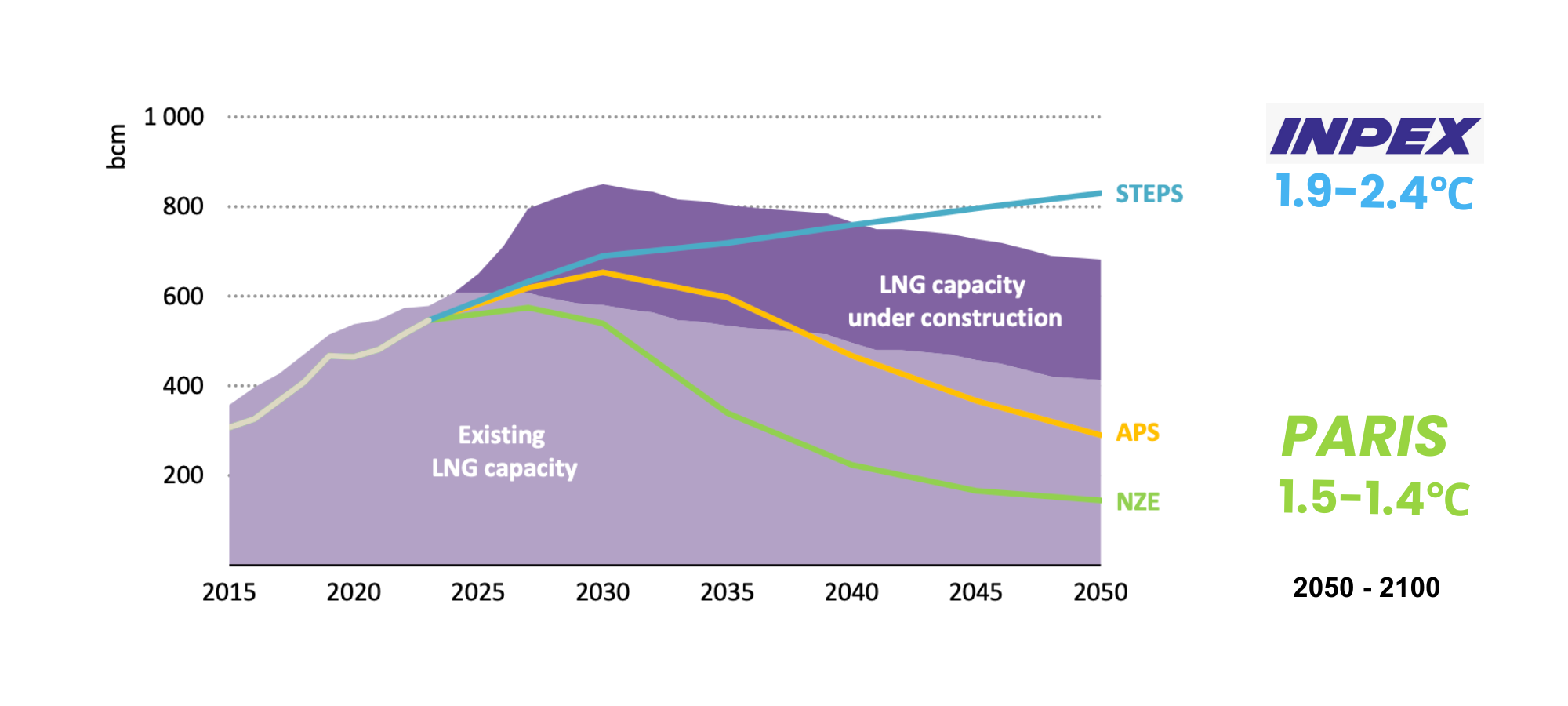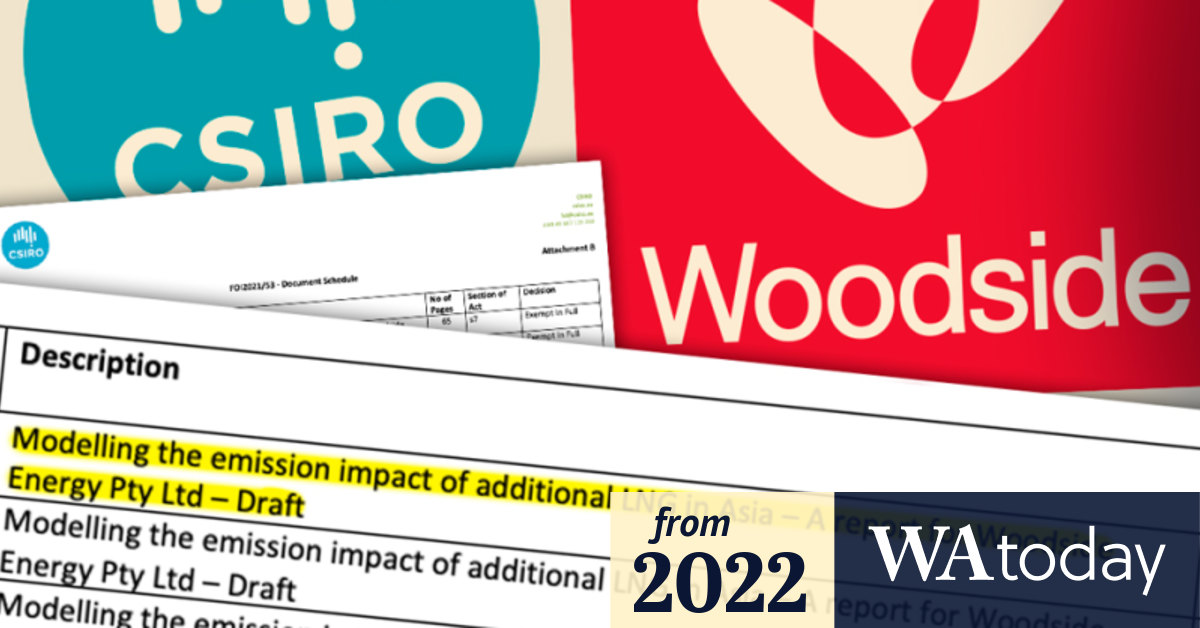🗡️ Who murdered the Murujuga rock art science?
Special Cluedo™️ edition 🔍 Was it Mr Cook or Prof Smith?
The Japanese energy giant is cherry-picking data to justify its gas growth plans.

ANALYSIS
INPEX chef executive Takayuki Ueda wants Australian governments to regulate less and subsidise more so Australian liquefied natural gas (LNG) exports can help meet a demand forecast based on a dangerous level of global warming.
Earlier this month Ueda outlined "what we, as foreign investors, expect from Australia" in light of Russia's 2022 invasion of Ukraine when, according to Ueda, countries and businesses shifted emphasis from emissions reduction to energy security.
The $25 billion company expects Australia to subsidise carbon storage, speed up environmental approvals, not alter the tax system, and commit to increasing gas exports.
Gas is the "ideal solution" to balancing climate and energy security" due to its cleanliness, abundant supply, and reasonable cost," Ueda told the Perth USAsia Centre at the University of WA on December 5.
"Demand for LNG will continue to grow strongly,"
"This view is shared by the International Energy Agency, which in its 2024 World Energy Outlook STEPS scenario forecasts that demand for LNG in Asia will continue to grow post-2040."
Yes, the IEA predicts that if governments worldwide do nothing more than implement stated policies - its STEPS scenario - more LNG is burnt.
However, the result is not a balance between climate and energy security, but a massive overshoot of the Paris Agreement target of keeping global warming within 1.5℃.

The IEA described the future Ueda used to support more gas extraction as "entailing ever more severe risks from a changing climate."
IEA's analysis shows the future for LNG investors if the world can achieve the Paris goals (its net zero emissions NZE scenario): they will be left with tens of billions of dollars worth of underutilized assets.
However, INPEX, like most of its contemporaries, is doubling down on gas investments.
It plans to add a third processing train to its Ichthys gas export plant in Darwin, which now provides eight per cent of Japan's gas.
The company, 22 per cent owned by Japan's Ministry of Economy, Trade and Industry (METI), is also pursuing the Abadi LNG project in Indonesia, which will be as big as Ichthys.
To justify gas growth considered climate-wrecking by the IEA, the 35-year METI veteran before joining INPEX trotted out many of the industry's standard lines.
NO - Countries need to transfer from coal to a high percentage renewables grid backed up by as little gas as possible.
This, however, implies declining gas demand and sits uncomfortably with Ueda's pitch that his product is seen as "not merely as a transition energy but rather as a destination energy."
NO - Woodside commissioned the CSIRO to look at the effect of increased LNG supply to Asian markets. Woodside released the report only after pressure from the media.

The conclusion was clear - in most cases more gas was of no or little benefit in reducing emissions, and in some cases forecast emissions rose as more gas delayed the uptake of renewable energy.
Only if a high global carbon price was assumed did the CSIRO analysis predict that additional LNG reduced emissions, but the researchers attributed this to the carbon price, not the gas.
The CSIRO report has been public for 2½ years, but industry and supplicant governments continue to spout debunked talking points.
NO - Hardly the "only" solution. Ueda omits the obvious: burn less fossil fuels.
NO - And "realistic" is, well, unrealistic.
The track record of CCS technology Ueda espouses gives no evidence that it could reduce emissions on a globally significant scale in the time frame required to limit global warming.
Almost all attempts to date store clean streams of CO2, like Chevron's underperforming Gorgon CO2 injection, where capture is relatively simple. However, the vast majority of emissions come from burning the gas, where capture is vastly more difficult, expensive, and energy-intensive.
NO - Even if the train's compressors were driven by electric motors powered exclusively by renewable energy, the end result would be a significant increase in climate-warming emissions.
Other emissions come from producing the gas offshore, pumping it to Darwin, shipping it to Japan and, most significantly, INPEX's customers burning it.
NO - The world's dependence on international trade in oil and gas is the cause of energy insecurity.
The turmoil in energy markets when Europe moved away from Russian gas after it invaded Ukraine showed the danger of relying on gas imports.
Renewable energy is homegrown energy.
The more of it a country has, the less dependent it is on the vagaries of commodity markets, risks to shipping as faced by the 20 per cent of global LNG supply that Qatar ships through the politically turbulent Straits of Hormuz, or the arbitrary actions of other countries.
Support independence
Tip Boiling Cold todayINPEX is investigating burying the CO2 in the gas it extracts for Ichthys - about a third of the project's total direct carbon pollution - in the Bonaparte Basin west of Darwin.
Ueda points to the US that offers an $US85 tax credit for every tonne of CO2 buried and Japan's payment of 100 per cent of the engineering and drilling costs for an INPEX CCS project in its home country.
He wants Australia to up its support "to maintain the competitiveness of Australian LNG in the international market."
Australian taxpayers would pay a Japanese company to sell their gas to its home country for less. What a deal!
"Streamlining approval processes for environmental plans and improving future predictability regarding regulatory design and taxation is crucial," was also part of Ueda's wish list.
"Any retrospective changes to the business environment can greatly perplex businesses," he said
Perhaps he was perplexed by minor changes to the Petroleum Resources Rent Tax.
Conversely, Australians would be perplexed that without the changes, the Ichthys LNG project would never have paid Australia for the oil and gas it would extract over decades.
Ueda concluded his speech as he began, giving directions to the nation he was visiting.
"Australia is both expected, and urgently needed, to play a decisive role in the stability of the energy markets," he said
"We believe that this role will pave the way for Australia to be respected globally."
It seems Ueda thinks we are not respected now.
This is an apt outcome for a nation that allows foreign governments and multinationals to determine its economic, environmental, and energy policies.
All the info and a bit of comment on WA energy and climate every Friday